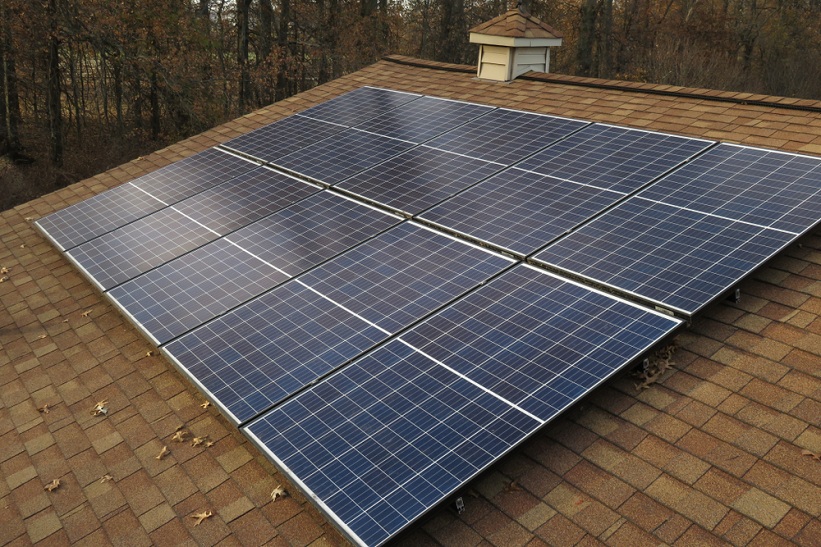Net metering is among the most attractive incentives for people who want to go solar. Net-metered systems allow homeowners to generate extra income by selling back any surplus energy they produce when their homes aren't using it. This extra energy is fed into the utility, which powers other houses or businesses.
The popularity of solar batteries has increased dramatically recently. More home solar panel owners are installing solar batteries with their solar power systems.
They're designed to store the extra power generated by the solar panels so they can be used later. It stores energy when solar panels don't generate power during the night or in bad weather.
Now the next thing to consider is whether or not your batteries are consuming the extra power produced by solar panels. And if so, then will net metering be beneficial for you?
Here we discuss the various kinds of net-metered systems, including which kind is best for use with solar batteries.
Net Metering Types: How are They Defined?
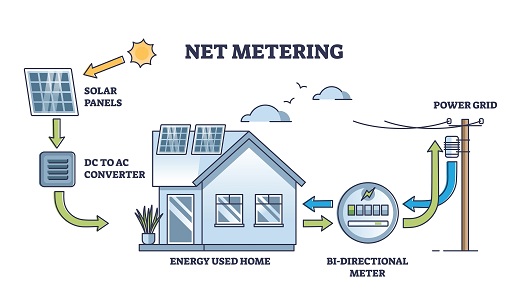
Net metering allows homeowners to sell excess electricity back to their utility company at a discounted rate. It also gives utilities an additional source of energy during peak times.
Some states, and sometimes particular utilities, provide different options for net metering ranging from basic savings to helping you generate income each month.
Net metering choices include the following:
i) Avoided Cost Metering
With avoidable costs net metering, the electric utilities reimburse you for the savings they made by not providing you with power, which is less than the retail price.
ii) Time of Use Metering
Time-of-usage (TOU) prices vary depending on energy usage levels. During peak hours, electricity is usually more expensive than at off-peak times. With net metered systems, you can buy excess energy at time-of-usage prices.
You'll be charged more if you purchase electricity when demand is high.
However, you will receive less money if it is purchased during non-peak hours.
iii) Full-retail Metering
In a Full retail net metering system, electric utilities pay for extra electricity when they buy it from generators at the full market rate. That means if you have extra energy to resell back to the grid, you'll be compensated for the full value of your generated power.
For comparison purposes, this rate is the full retail value — the price your non-solar neighbor would pay if they were buying electricity from an electric utility company.
Full retail net metered energy policies (also called “NEM”) represent the most reliable type of net metering program for residential solar systems.
It has no fluctuations because it's not affected by electricity rates due to demands or other external factors. Solar energy is a good option if you reside in an area where utilities offer full retail net metering.
However, many state governments are reducing their net metering policies, so more consumers are turning towards solar battery systems for storing electricity.
Solar Batteries Explained

Solar batteries are increasingly popular among residential solar panel owners, available in various types, including the LG Chem RESU, Tesla Powerwall, and Sonnen Core.
When connected to your solar panel system, these battery banks store extra electricity when your home doesn't need it for immediate consumption.
This energy can be used when there isn't enough sunlight available without drawing extra energy from the utility.
According to your situation, whether you use battery storage or a net metered system rely on the utility for backup electricity makes more sense.
What is The Price of a Solar Battery?
You can choose between numerous brands and types of solar batteries, costing anywhere from $200 for a 1.5 kW/h system to $14,000 or even more for a 16kWh battery system. Typically, household batteries are required to
store many kilowatt hours (kWh) to be practical; for example, the LG battery (Chem Prime) with a capacity of 16 kWh.
Suppose you purchase a typical 6 kW solar panel system, which costs approximately $16,500 without any federal tax credits. If you include an LG Chem, which for example’s purpose costs $10,500, your overall system price would be $27,0000 before any incentives or discounts.
The complete system would cost $18,900 under the federal tax credit plan.
Will Purchasing Solar Batteries Lengthen Your Payback Time?
The payback time is the time it will take for you to repay your investment in solar panels fully. It is a crucial factor when you're looking at buying solar panels.
Adding batteries to your solar system will make it high-priced and lengthen the time it takes to recover your investment.
When calculating the payback time for a solar energy system, you'll need to figure out how much you'll save on your electric bill by installing the panels, with and without batteries.
Knowing your payback time will assist you in deciding whether to buy a battery pack with your solar panel or just depend on net-metered electricity from the utility company and use the utility for backup.
For example: Calculate your payback periods by comparing results when using batteries vs. not using them.
Payback time = Full price of your new solar panel/annual savings
Suppose the total cost of the Solar panel System with Battery is: $20,800
The total cost of the Solar panel System with Battery is: $13,400
Average U.S. annual energy consumption in 2020: 877 kWh per month
Average Electricity Costs for the U.S.: $0.14 per kWh
Savings per month: 877 kWh * $0.14 = $122.78
Annual savings: $122 * 12 months = $1,464
Payback time (including solar battery): $20,800/$1,464= 14.20 years
Payback time (not including solar battery): $13,400/$1,464 = 9.15 years
You can see from the above example that without a battery, you'd pay off your solar panel faster because its cost would be lower than if you had one.
If you decide to buy a solar battery, it may impact the benefits you get from your net metering. You could earn less than if you relied solely on net metering.
Which is More Cost-effective: Net Metering or Solar Batteries?
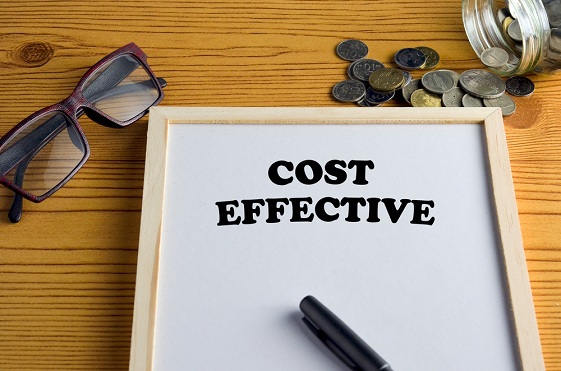
We will look at examples of each type of net metering system. For our purposes, let’s say that the average U.S. electricity rate for 2021 is $0.14 per kilowatt hour (kWh).
The avoided costs for utilities, or the savings the utility company makes when they don't provide power to you, varies greatly from one time period to another. In this case, it costs $0.02 per kilowatt hour (kWh).
To keep things simple, let us presume that the consumption of a home is 870 kWh of energy per month but produces 930 kWh of electricity per month.
Your savings from using solar batteries may vary depending on your state or utility's net-metered policy.
Below given is the comparison of the most usual choices; the following numbers are accurate for each case:
Solar energy generated | 930 kWh |
Solar energy used | 870 kWh |
Retail price of electricity | $0.14 per kWh |
Electricity avoided costs | $0.02 per kWh |
(Case 1) Avoided Cost Metering
If you use the avoided-rate method, your extra 60 kWh of energy would be priced at $0.02, which means your credit would be $1.20.
While this may look appealing, the excess electricity in a battery is $8.40 because you'd be paying for electricity at its full retail price.
Because your energy is worth more when stored for later use, batteries make financial and logical sense here. If you sold the extra energy back to the electric company, you'd make a lower profit than if you kept using the electricity yourself.
(Case 2) Time of Use rate metering
Under time-of-use electricity prices, you are charged more when power demand is high and less when demand is low.
Different electricity prices can make calculating the benefits of your net metering somewhat more complicated.
First, glance at the following infographic showing normal peak solar power generation and peak energy usage times.
Peak solar output doesn't always align with peak energy use. This is why a battery storage unit is so appealing - you can store your solar energy when you need it most. You will depend on the utility for extra electricity if you don't have a backup power source (battery).
For this assumption, let's say that your electricity company describes "peak" hours as between 4 p.m. and 9 p.m. when electricity costs $0.20 per kilowatt hour (kWh). All other hours are off-hours and cost $0.14 per kWh.
Of course, your solar panel will generate more power during the mid-day than at night. Unfortunately, at this time, electrical power rates are the lowest. During this period, the extra electricity you generate from solar panels will cost you $0.14 per kilowatt hour (kWh).
On the contrary, your solar panels will generate the lowest amount of electricity during peak hours, when power companies charge the highest prices - $0.20/kWh.
By installing the solar battery, the extra energy generated by your solar panels during the daytime can be stored to use at night when electricity prices are high. Since you're not paying for electricity at night when you use it, your extra energy will cost you $0.20 per kilowatt hour (kW).
Buying a solar battery would be the best option for this situation. You can save money by relying on the battery power you stored up during the day rather than buying additional electricity from the grid.
The same rule applies to areas without any net metering. You won't get any money off your extra solar energy, so why not just store this energy for your usage?
(Case 3) Full-retail rate metering
If your solar panels produce 950-kilowatt hours (kWh), but your house uses 800 kilowatt hours (kWh), then you could sell an extra 60 kWh of power back into the grid for $0.14 per kW, which means you'd get a credit of $8.40 on your electricity bill.
It doesn't make financial sense if you install a solar battery here because of the available full retail net metering benefit. Instead of selling your extra electricity to utilities, if you purchased battery energy storage, they could store it at night when there isn't enough sun.
A backup battery can provide some protection against power outages and blackouts, but it won't help you earn or save any extra cash.
Factors to Think About Before Purchasing Solar Batteries
While costs and savings are crucial, particular situations may make batteries more appealing. For instance, If your state has frequent power blackouts like New York or California, a battery backup will be useful for keeping your electricity running when the grid goes down.
Or, if you're concerned only about relying on renewable power sources, a backup battery will help decrease your dependence on the electricity grid.
Battery Net-Metering System
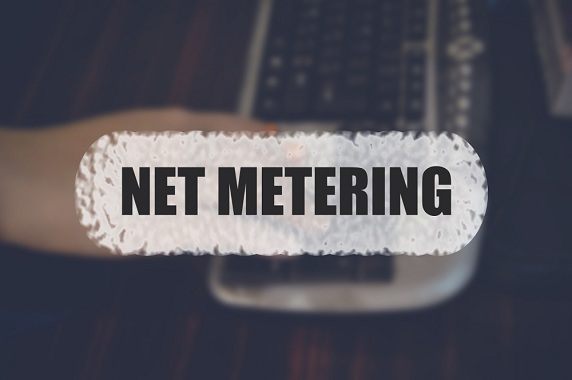
A new idea is being proposed for updating existing policies for net metering – called ‘NEM Paired Storage' or “Battery Net Metering.” It has been recently passed into law in California.
As we've seen before, the same as how net metering currently works, where utility companies buy electricity generated by rooftop solar panels, they could also buy electricity stored in a battery.
NEM-paired storage is also slowly gaining popularity in other states because home battery systems have been steadily growing across the United States.
One of the reasons why this law is so attractive in California is because its three major utility companies are already implementing time-of-use pricing, which means electricity will cost more during high-demand periods.
With solar backup batteries, you can avoid paying high electricity rates when demand is highest.
Using battery net metered systems, you can sell any extra power you generate if the electricity is entirely made up of solar power.
Do You Need an Additional Solar Energy Storage System (Battery)?
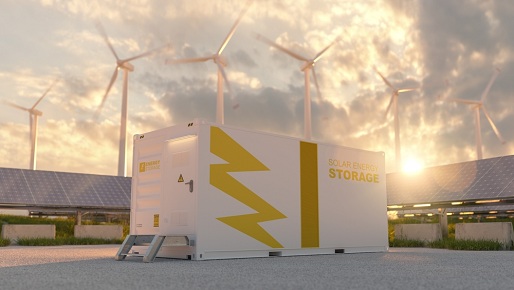
Don't buy a battery if the state you live in offers favorable net-metered policies and you're only concerned about saving and making extra income.
If there are poor net-metering policies in your state, don't allow any net-metering, or charges time-of-use (TOU) utility bills, a battery system may be right for you.

